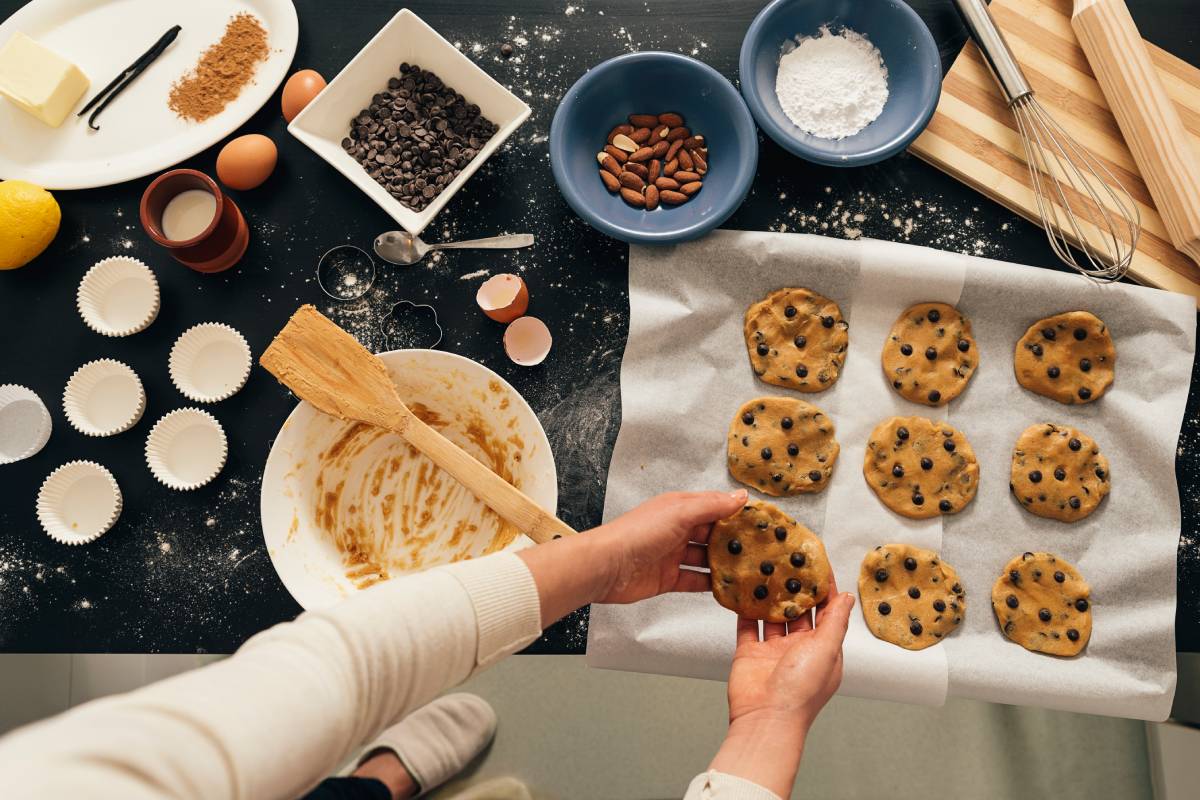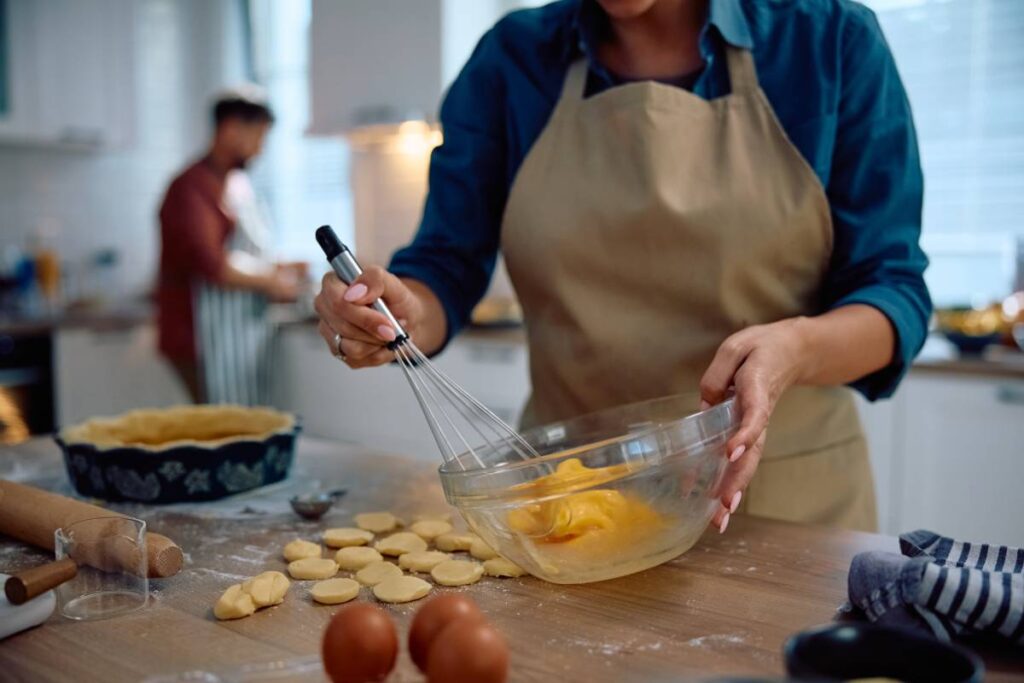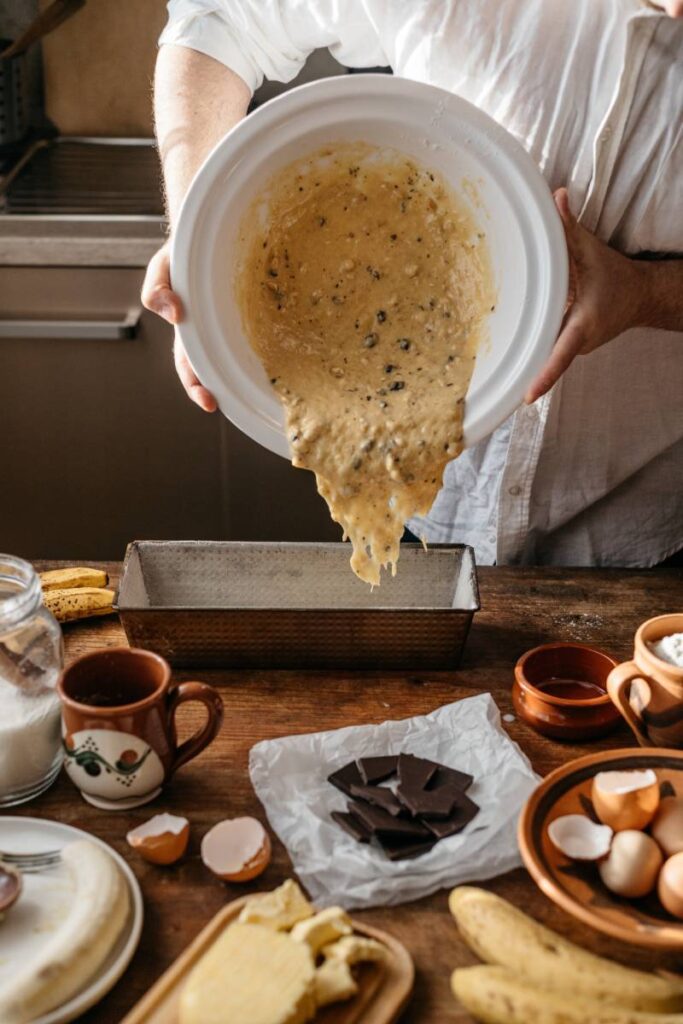Notice: Undefined variable: imgsize in /home/chindiar/domains/we-teach-reading.com/public_html/wp-content/themes/blogmag/single-narrow.php on line 19

Common Rookie Cookie Mistakes: Why They’re Hard as Rocks
There’s nothing quite as disappointing as biting into a freshly baked cookie, only to find it’s hard as a rock.
If you’re new to baking, you might be wondering, “What went wrong?” Don’t worry—you’re not alone. Many rookie bakers encounter this issue, and the good news is that these problems are easily avoidable once you understand the basics of cookie baking.
In this article, we’ll explore the most common reasons cookies turn out hard, and how to ensure your next batch is soft, chewy, and delicious.
1. Measuring Ingredients Incorrectly
Baking is a science, and accurate measurements are critical to getting the desired result. One of the most common rookie mistakes is measuring flour incorrectly. When flour is packed into a measuring cup, it results in too much flour, which can make cookies dry and hard.
Solution: Use the “spoon and level” method to measure flour. Fluff the flour with a spoon, gently spoon it into the measuring cup, and level it off with a knife. Better yet, invest in a kitchen scale for precise measurements.
2. Overmixing the Dough
It might be tempting to mix your cookie dough until it’s perfectly smooth, but overmixing can lead to tough cookies. Overmixing develops gluten, the protein in flour, which is great for bread but disastrous for cookies.
Solution: Mix just until the ingredients are combined. Once you can’t see any streaks of flour, stop mixing. If you’re adding mix-ins like chocolate chips or nuts, fold them in gently.

3. Using the Wrong Type of Sugar
Sugar plays a crucial role in cookie texture. White sugar makes cookies crispier, while brown sugar adds moisture and chewiness. Using only white sugar can lead to harder cookies.
Solution: Use a mix of white and brown sugar for a balanced texture. If the recipe doesn’t specify, a good starting point is a 50/50 ratio.
4. Not Enough Fat
Butter or other fats give cookies their soft and tender texture. Skimping on fat can result in cookies that are dry and hard.
Solution: Stick to the recipe’s measurements for butter, shortening, or oil. Don’t try to make cookies “healthier” by cutting back on fat unless the recipe is specifically designed for it.
5. Overbaking
One of the most common rookie errors is leaving cookies in the oven for too long. Cookies continue to cook on the baking sheet even after being removed from the oven. If you wait until they look fully baked, they’ll likely harden as they cool.
Solution: Remove cookies from the oven when the edges are set, but the centres still look slightly underdone. They will firm up as they cool.
6. Not Using Room Temperature Ingredients
Using cold butter or eggs can affect how well your ingredients mix together. This can result in dense, hard cookies.
Solution: Plan ahead and let your butter and eggs come to room temperature before baking. Room temperature butter should be soft but not melting. If you’re in a rush, you can soften butter by cutting it into small pieces or microwaving it for a few seconds (just be careful not to melt it).
7. Skipping the Chill Time
Many cookie recipes recommend chilling the dough before baking, and for good reason. Chilling helps solidify the fat in the dough, which prevents cookies from spreading too much and becoming dense and hard.
Solution: Don’t skip the chilling step. If the recipe doesn’t specify, chilling for 30 minutes to an hour is usually sufficient.

8. Using the Wrong Baking Sheet
Believe it or not, the type of baking sheet you use can affect the texture of your cookies. Dark, nonstick baking sheets absorb more heat and can cause cookies to overbake, while thin sheets can cause uneven baking.
Solution: Use a light-coloured, heavy-duty baking sheet for the best results. Lining your sheet with parchment paper or a silicone baking mat can also help prevent overbaking.
9. Ignoring Oven Temperature Accuracy
Oven temperature plays a critical role in baking. If your oven runs hot or cold, your cookies may bake unevenly or too quickly, leading to hard results.
Solution: Use an oven thermometer to ensure your oven is calibrated correctly. Adjust the temperature as needed to match the recipe’s requirements.
10. Substituting Ingredients Without Understanding Their Role
Baking substitutions are tricky, especially for beginners. For example, swapping butter for margarine or using a different type of flour can drastically change the outcome of your cookies.
Solution: Follow the recipe as closely as possible. If you need to make substitutions, do some research to understand how they’ll affect the texture and flavour of your cookies.
11. Not Allowing the Cookies to Cool Properly
Even if your cookies are perfectly baked, improper cooling can make them hard. Leaving cookies on a hot baking sheet for too long can overcook the bottoms, making them tough.
Solution: Transfer cookies to a wire rack to cool as soon as they’re firm enough to move. This allows air to circulate around the cookies, preventing them from getting soggy or hard.
12. Using Old Ingredients
Old baking powder, baking soda, or even stale flour can negatively impact the texture of your cookies. These leavening agents lose their effectiveness over time, which can result in dense, hard cookies.
Solution: Check the expiration dates on your ingredients, and replace anything that’s past its prime. Store baking staples in a cool, dry place to keep them fresh.
13. Not Adjusting for Altitude or Humidity
Environmental factors like altitude and humidity can affect your baking. In dry climates or at high altitudes, cookies may bake faster and turn out drier.
Solution: If you live at high altitude, reduce the baking time slightly and consider adding an extra tablespoon of liquid to the dough. In humid environments, store cookies in an airtight container with a slice of bread to keep them soft.
14. Overloading the Dough with Mix-Ins
While chocolate chips, nuts, and other mix-ins add flavour and texture, overloading your dough can throw off the balance of ingredients. This can result in cookies that are heavy and hard.
Solution: Stick to the recommended amount of mix-ins in the recipe. If you’re experimenting, add mix-ins gradually and test-bake a small batch first.
15. Skipping the Test Batch
When trying a new recipe, it’s always a good idea to bake a small test batch before committing to the whole batch. This can help you catch any issues early on.
Solution: Bake 2-3 cookies as a test batch. Adjust the dough, oven temperature, or baking time as needed before baking the rest.
Final Thoughts
Baking cookies is a delightful and rewarding activity, but it does require some attention to detail. If your cookies are turning out hard as rocks, don’t be discouraged. By identifying and addressing these common rookie mistakes, you’ll be well on your way to baking cookies that are soft, chewy, and irresistible.
Remember, practice makes perfect, and every batch brings you closer to mastering the art of cookie baking.



